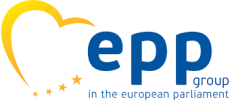Hosted by MEP Mr. Lukas Mandl, Vice-Chair of the EP Subcommittee on Security and Defence, on 11 December at the European Parliament
Moderated by Ms. Shada Islam, Director of Europe and Geopolitics at Friends of Europe, this discussion sought to answer how the EU could better leverage its diplomatic influence to strategically de-escalate tensions across the Middle East. The event brought together experts, academics and EU policy-makers to debate perspectives on how best to preempt potential conflict, and also consider what concrete steps a new 'geopolitical' European Commission should take to demonstrate strategic leadership in the region.
Keynote Speakers:
-
• Ambassador Marc Otte, BIC President and Belgium Special Envoy for Syria
-
• Dr. Peter Krois, Austrian Delegate for North Africa, the Middle East and the Gulf Region
-
• Dr. Amelie Chelly, Expert on Iran and Middle East, CADIS (EHESS-CNRS) Paris
-
• Ms. Paula Yacoubian, Lebanese MP, Journalist and Recipient of the Officer of the Order of the Crown Award
Outcomes and Recommendations:
-
• The EU should continue to act as a rational, reliable, and balanced partner. It needs to identify and exploit opportunities for peace, engage all actors (including China and Russia), and focus on supporting local initiatives between regional players through a continual and inclusive dialogue. With increasingly fragile regional dynamics, it's vital to remain committed to multilateral solutions to peace and security.
-
-
• All actors should reevaluate tomorrow's drivers of conflict, such as climate change and water scarcity. We must consider the impact of demographic change in destabilising the region. Youth bulges can catalyse conflict, for example in Iraq in 2011, and we need to proactively develop solutions for future demographic trends.
-
-
• Social unrest in Iran is driven by economic fragility, which must be addressed by resolving both sanctions and financial governance. Subsequently, Iran's desire to increase their regional influence has resulted in resentment both domestically and regionally, notably for pushing valuable national resources out of the country. The precarity of the JCPOA must be addressed by the European Union, particularly as Iranian influence in the Lebanese and Iraqi protests threaten to pose new challenges to the future of the region.
-
-
• The state of affairs in Lebanon is dangerously fractured, and there is a serious risk of extremist violence. EU should refocus its support to human rights and fostering economic stability. The geopolitical power play that is taking place in Lebanon, underscored by a fierce competition for authority, threatens the future of Lebanese independence.
-
-
• A true geopolitical European Union should strive to create a more responsible world order that respects all countries, similar to what was created after the Cold War. The current disarray in the region happens in the context of broader global disorder.

